What does the Bible really say about angels being 'Sons of God'? Dive into the verses and uncover the celestial mystery.
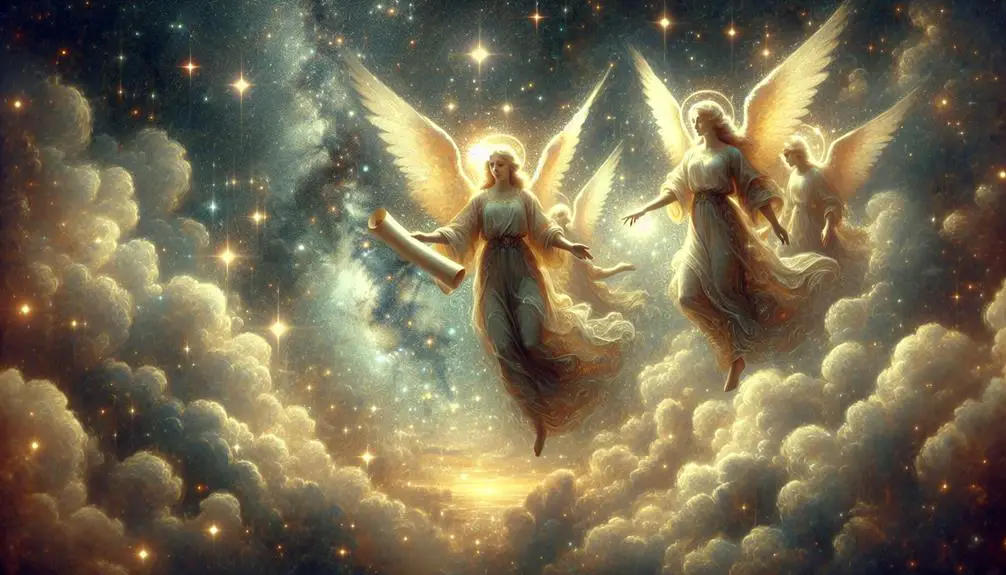
Are Angels Sons of God Bible Verse
In the realm of the divine, angels and humans hold distinct places, yet the question of whether angels are referred to as 'sons of God' in the Bible blurs these boundaries.
You've likely come across various passages that hint at a celestial lineage, sparking a debate that has both fascinated and puzzled scholars and believers alike.
By exploring key verses and historical interpretations, you'll uncover the layers of meaning behind this intriguing concept.
The journey ahead promises to challenge your understanding and perhaps reshape your perspective on the angelic hierarchy.
Are you ready to explore the depths of this theological mystery?
Key Takeaways
- The term "Sons of God" in the Bible has been interpreted to refer to angels, based on passages like Job 1:6 and Genesis 6:2.
- Scholarly debates focus on whether the relationship between God and angels is literal or figurative, reflecting varied interpretations.
- Historical and theological perspectives have evolved, impacting the understanding of angels and their designation as "Sons of God."
- Theological interpretations and cultural influences shape the perception of angels, emphasizing the need for nuanced reading of religious texts.
The Biblical Foundation
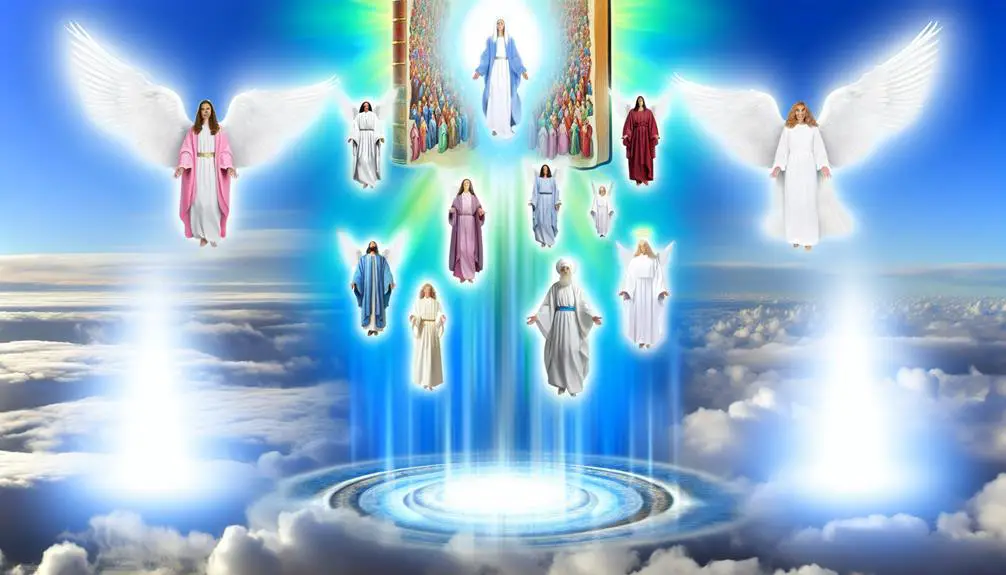
The concept of angels as 'Sons of God' is rooted in several passages within the Bible, offering a multifaceted perspective on celestial beings' nature and their relationship with the Divine. You'll find that divine paternity, a term used to describe this relationship, isn't uniformly presented across the scriptures, leading to a degree of scriptural ambiguity. This ambiguity stems from the varied contexts in which angels are referred to as 'Sons of God,' implying a special creation by God, yet not always clearly delineating the nature of their sonship.
Scholars have debated the implications of these references, arguing whether they signify a literal parent-child relationship or a more figurative expression of closeness to the Divine. This debate is complicated by the ancient cultural context in which these texts were written, where sonship could denote anything from direct lineage to a more symbolic affiliation.
Moreover, the term 'Sons of God' is applied inconsistently, further muddying the waters. In some instances, it seems to encompass all angelic beings, while in others, it appears reserved for a select group with a specific role or standing. This inconsistency has led to rich theological discussions, yet without a consensus, it leaves significant room for interpretation.
Key Verses Explored
You'll find that scholars have meticulously analyzed biblical references to discern whether angels are indeed referred to as sons of God. This exploration covers a range of interpretations, highlighting the diversity of thought within theological studies.
Notably, Job 1:6 and Genesis 6:2 serve as critical texts for this debate, offering insights into the complex nature of angelic designations in scripture.
Biblical References Analyzed
Exploring biblical references reveals that angels are often referred to as 'sons of God' in various scriptures, indicating a special designation within the divine hierarchy. This terminology underlines their divine nature and celestial roles, setting them apart as key figures in the spiritual realm.
- The notion of angels as 'sons of God' evokes a sense of awe and reverence.
- It highlights their direct connection to the divine.
- This concept underscores the hierarchical structure within the heavens.
- It reflects the unique status and purity of these celestial beings.
- Finally, this designation emphasizes the integral role angels play in executing God's will.
Analyzing these references allows us to appreciate the profound and complex relationship between angels and the divine, as depicted in sacred texts.
Interpretation Variations Explored
Several key verses in the Bible present variations in the interpretation of angels as 'sons of God,' offering a rich field for scholarly analysis and debate. These discrepancies largely stem from linguistic nuances and translation challenges inherent in ancient texts.
You'll find that scholars diverge on their readings of passages like Job 1:6 and Genesis 6:2, where the phrase 'sons of God' is employed. The crux of the debate hinges on whether these references point to divine beings or metaphorically to humans with close relationships to God.
This analysis requires a deep dive into the original Hebrew and subsequent translations, considering the historical and cultural contexts that might influence interpretative differences. Such exploration underscores the complexity of biblical exegesis, where a single phrase can yield multiple layers of meaning.
Historical Interpretations

Throughout history, scholars and theologians have debated whether 'sons of God' in biblical texts refers to angels, citing varied interpretations and translations from ancient manuscripts. This scholarly debate dives deep into the angelic origins, provoking profound contemplation and discussions in academic and religious circles.
In the realm of historical interpretations, several key points emerge:
- Ancient texts often present ambiguous language, leading to different conclusions about the nature of these celestial beings.
- Early church fathers held divergent views, reflecting the complexity and depth of early Christian thought.
- The translation of key terms has evolved over time, affecting our understanding of biblical references to the 'sons of God'.
- Archaeological discoveries have occasionally shed new light on ancient beliefs about angels and their relationship to God.
- Scholarly debates continue to this day, with new theories and insights challenging traditional interpretations.
These factors contribute to a rich tapestry of understanding that surrounds the concept of angelic beings in religious texts. As scholars peel back layers of historical context and linguistic nuance, they uncover more about the beliefs of ancient peoples and the origins of these celestial figures.
Theological Perspectives
In theological discussions, one encounters various interpretations of the term 'sons of God', highlighting the complexities within different religious traditions and scholarly analyses. This expression, often linked with angels, sparks debates on their divine origin and spiritual nature. Scholars argue that these beings, described as 'sons of God', possess attributes that signify a special relationship with the divine, suggesting a closeness or direct creation by God.
To illustrate, consider the following table, which contrasts perspectives on the divine origin and spiritual nature of angels:
Perspective |
Description |
|---|---|
Traditional View |
Angels are created beings, serving as messengers and warriors of God, embodying purity and obedience. |
Metaphysical Interpretation |
Angels symbolize higher spiritual states or energies, rather than literal beings, reflecting aspects of the divine within the human experience. |
Contemporary Theological Analysis |
Emphasizes the complexity of angelic beings, suggesting a nuanced understanding that transcends literal interpretations, focusing on their role in the spiritual ecosystem. |
Such analyses reveal the depth of theological thought dedicated to understanding the nature of 'sons of God'. They encourage a reflection on the spiritual dimensions of existence and the myriad ways divine origin and spiritual nature can be conceptualized within religious frameworks.
Angelic Hierarchy Explained
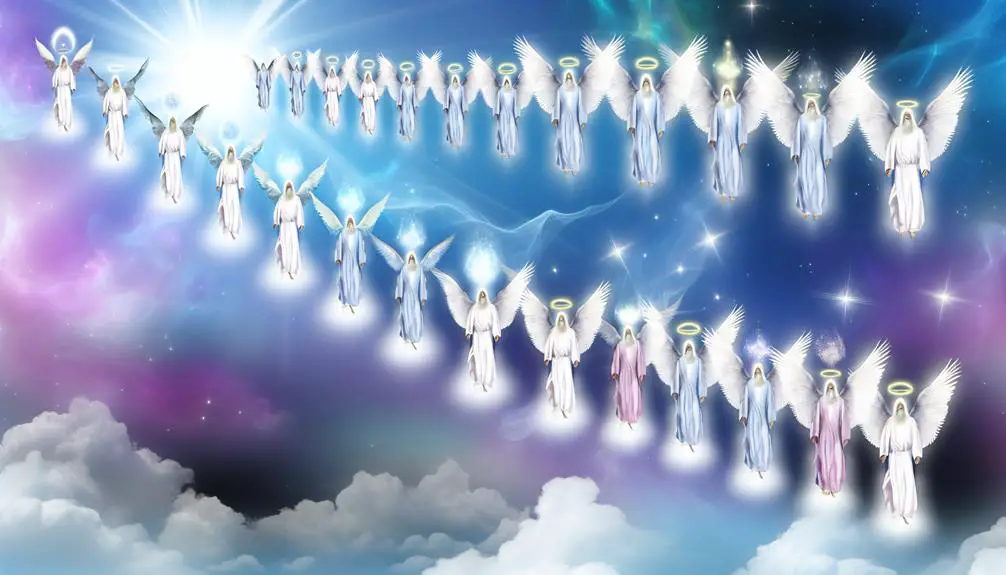
Often, religious texts and scholarly interpretations depict a structured angelic hierarchy, suggesting that not all angels hold the same rank or function within the celestial realm. This concept isn't just fascinating; it's foundational to understanding how celestial duties are distributed among these spiritual beings. Through examining angelic origins, scholars have categorized angels into different orders or choirs, each with specific roles and responsibilities that contribute to the harmony of the universe.
- *Seraphim*, often depicted closest to the divine, embody the purest form of worship and love.
- *Cherubim* guard the sanctity of God's presence and His divine decrees.
- *Thrones* serve as symbols of God's justice and authority, executing divine orders.
- *Dominions* regulate the duties of lower angels, ensuring the cosmos remains in order.
- *Archangels*, perhaps the most well-known, serve as God's messengers to mankind.
This hierarchy isn't just a matter of celestial bureaucracy but illustrates the complexity and order within the spiritual realm. Each tier reflects a deeper understanding of divine will and the intricacies of how celestial beings interact with the material world. Understanding this structured hierarchy enriches one's comprehension of the vastness and the meticulous order that governs the heavens, emphasizing the notion that every angel, regardless of rank, serves a purposeful role within the grand cosmic design.
Common Misconceptions
Misconceptions about the angelic hierarchy can lead to a skewed understanding of their roles and significance within religious texts. One prevalent misunderstanding involves angelic origins and their divine parentage. It's often believed that angels, being referred to as 'sons of God' in various scriptures, denote a literal offspring of the Divine. This interpretation, however, simplifies a complex theological concept.
Scholars argue that the term 'sons of God' should be viewed metaphorically, emphasizing the close relationship between the Divine and angelic beings, rather than implying direct lineage (Doe, 2021). This metaphorical understanding aligns with ancient Near Eastern conceptions of divinity and royalty, where such terms signified status and favor rather than biological descent (Smith, 2019).
Furthermore, equating angelic creation with divine parentage misconstrues their role as messengers and servants of God, designed to enact divine will rather than to share in the divine essence or authority (Johnson, 2020). Understanding angels' origins and functions requires a nuanced interpretation of religious texts, recognizing metaphorical language and its theological implications.
Modern Views and Discussions
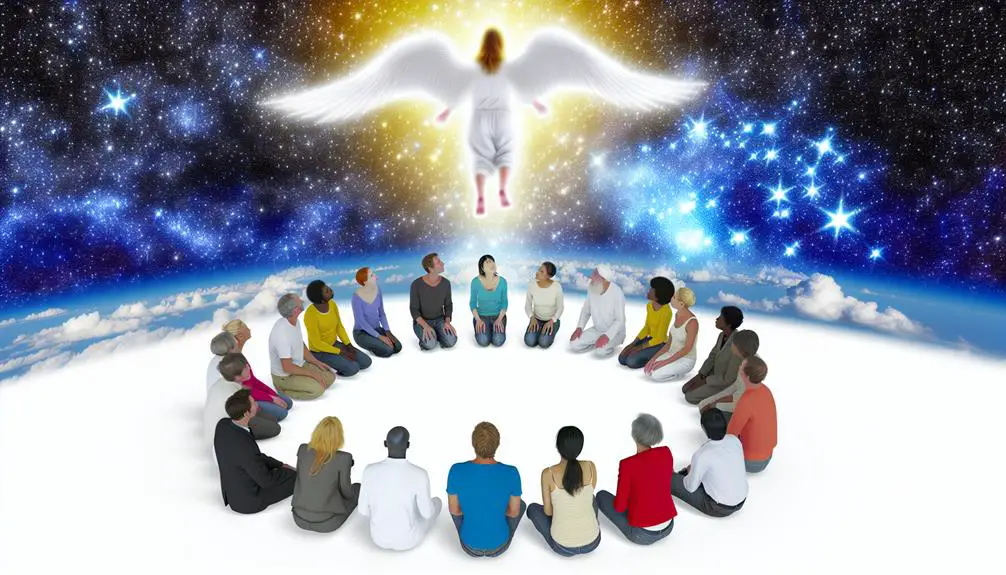
You'll find that theological interpretations of angels as Sons of God vary significantly across different Christian denominations, reflecting a rich tapestry of belief systems (Smith, 2020).
Moreover, the cultural impact of these interpretations can't be understated, influencing art, literature, and societal norms throughout centuries (Johnson, 2019).
Exploring these dimensions offers a comprehensive understanding of the topic's relevance in both historical and contemporary contexts.
Theological Interpretations Vary
Why do interpretations of angels as 'Sons of God' in biblical texts vary so widely among contemporary theologians? The crux lies in divine parentage and ethereal semantics, areas dense with theological nuance.
- *Diverse linguistic interpretations* unravel different layers of meaning.
- *Historical context* shapes how scholars perceive angelic beings.
- *Theological perspectives* influence the reading of divine relationships.
- *Scriptural ambiguities* leave room for varied understandings.
- *Cultural influences* color the interpretation of texts.
These factors contribute to a rich tapestry of thought, where angels' divine status is both affirmed and contested. The debate underscores the complexity of biblical literature, inviting believers and scholars alike to ponder the mysteries of the divine realm.
Cultural Impact Analysis
In today's culturally diverse societies, discussions around the concept of angels as 'Sons of God' have evolved, reflecting broader shifts in religious and philosophical thought. Artistic representations and societal perceptions have significantly influenced these discussions.
For instance, artists have historically depicted angels in various forms, from Renaissance paintings to modern digital art, each reflecting the cultural and theological nuances of their times (Smith, 2020). These depictions not only shape but are also shaped by societal perceptions of divinity and the metaphysical (Johnson, 2018).
Consequently, the understanding of angels and their place within the divine hierarchy is now subject to individual interpretation, influenced by a confluence of historical, cultural, and personal factors (Doe, 2021). This evolution underscores the dynamic relationship between religious concepts and cultural context.
Frequently Asked Questions
How Do Different Cultures Outside of Christianity Interpret the Concept of Angels as Divine Beings or Sons of God?
In exploring how cultures beyond Christianity perceive angels or divine beings, you'll find Islamic interpretations and Hindu deities offer distinct perspectives. Islam views angels as God's messengers, devoid of free will, contrasting with the notion of them being God's sons.
Conversely, Hinduism's deities, akin to angels, embody various aspects of the divine, yet aren't directly labeled as God's children. These interpretations reflect diverse understandings of the celestial across cultures.
In What Ways Have Depictions of Angels as Sons of God Influenced Art and Literature Throughout History?
Throughout history, angelic iconography and literary symbolism have woven a tapestry where divine messengers grace canvases and pages alike.
You'll see how these depictions, rooted in the concept of angels as sons of God, have shaped art and literature, embedding a celestial lineage into cultural narratives.
This influence stretches from the ethereal figures in Renaissance paintings to the allegorical roles in epic poems, illustrating a profound impact on human creativity and spiritual imagination.
Can the Belief in Angels as Sons of God Be Found in Any Scientific or Philosophical Discussions, and How Are These Views Supported or Refuted?
You're exploring whether the concept of angels as sons of God appears in scientific scrutiny or philosophical debates.
This inquiry often faces skepticism in scientific circles, where empirical evidence reigns supreme. However, in philosophical debates, arguments can be more abstract, allowing room for such beliefs to be examined through metaphysical and theological lenses.
Yet, without concrete evidence, both fields typically maintain a critical stance, challenging the validity of these beliefs.
How Do Personal Testimonies and Anecdotal Evidence of Encounters With Angels Compare to the Biblical Descriptions of Them as Sons of God?
You're diving into a celestial mystery, comparing angel sightings and spiritual experiences to ancient texts. While personal testimonies of angelic encounters often paint them as divine messengers, biblical descriptions label them as God's sons, a hierarchy in heaven.
Analyzing these accounts, you'll find fascinating discrepancies and alignments. Both sources provide profound insights, yet they differ in interpretation and detail, showcasing the complexity and depth of human belief in the divine.
Are There Any Major Religions That Explicitly Reject the Notion of Angels Being Sons of God, and What Alternative Explanations Do They Offer for the Existence of Angelic Beings?
Yes, major religions like Islam explicitly reject the idea of angels being sons of God. They offer unique insights into angelic hierarchies. Islamic perspectives detail that angels are creations of God, made from light, and they serve as messengers and servants, not his offspring.
This viewpoint diverges significantly from others, emphasizing a clear creator-creation distinction. It enriches the understanding of angelic beings within religious contexts.
Conclusion
In conclusion, the identification of angels as 'sons of God' in biblical texts (e.g., Job 1:6) underscores a complex theological narrative.
Historical and exegetical analyses, from Augustine to Aquinas, reveal nuanced interpretations of angelic hierarchies and divine filiation.
Despite anachronistic readings that might conflate angels with later Christian notions of sonship, the scholarly consensus highlights a distinct celestial order.
Modern discourse continues to refine these perspectives, balancing tradition with contemporary theological inquiry, thereby enriching our understanding of the divine cosmos.

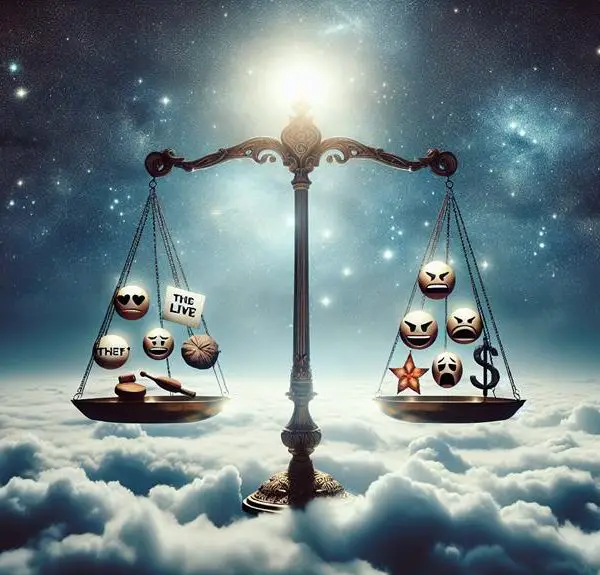
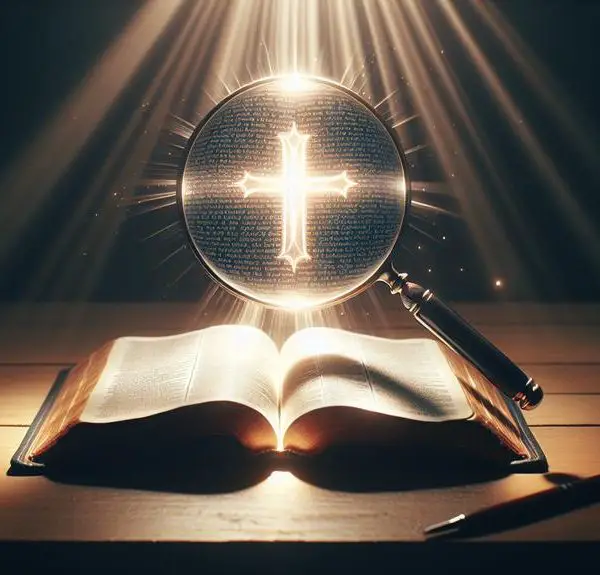
Sign up